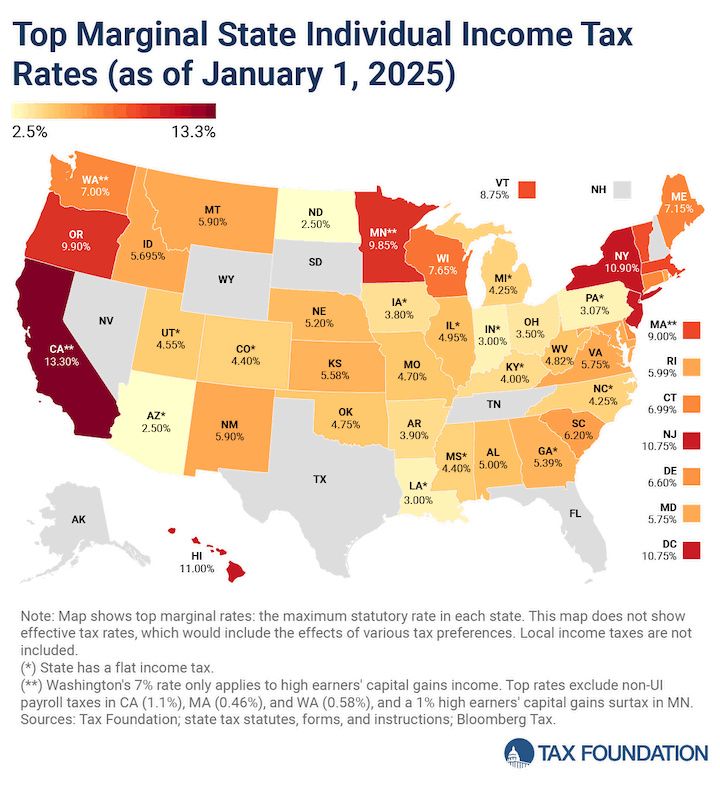Freelancer insurance can be a lifesaver for small businesses, but it’s a proper head-scratcher trying to navigate what you need and what you don’t.
In this article, we’ll be asking whether you need freelancer insurance, what types are essential vs. useful, and how to go about getting insurance, including common exclusions to watch out for. Sarah Fleming, founder of Digital PR firm First Create, has also given us some tips in our ‘Ask a freelancer’ sections.
Read on for the full guide or head straight to your preferred section.
- Why do I need freelancer insurance?
- What types of insurance do I need as a freelancer?
- Is there specialist IR35 insurance?
- How do I get insurance as a freelancer?
- What exemptions do I need to be aware of?
- Other tips and tricks
- How to get health insurance as a freelancer?
Why do I need freelancer insurance?
As a freelancer, the work you do is all on you – you’re the one who’s liable.
The sad reality is that pretty much anything can go wrong, especially as you’re on your own. A client could be dissatisfied, you might miss a deadline or something unforeseen, such as an accident or sickness, can hinder your business.
As we’ll talk about later, it could simply be the fact that clients want you to have certain types of insurance. Even if they don’t, proving that you have insurance makes you appear more professional, cementing that trust between you and your clients.
What types of insurance do I need as a freelancer?
Of course, there are many different types of insurance.
Some will combine to make a bespoke freelance policy while others can be taken out as a standalone policy.
Professional indemnity insurance
You’re the face of your company, meaning that you and your reputation are inextricably linked. Professional indemnity insurance protects you against action that a dissatisfied customer might take against you. Say that you’re a consultant and you give some less-than-ideal advice to a client and they lose money on their business because of it – you could make a claim on your professional indemnity insurance.
See also: What is professional indemnity insurance? Professional indemnity insurance provides cover if somebody sues your business and they allege that your advice caused financial loss or damaged their brand. It’s not just for accountants and lawyers but for anyone offering a personal service, even web designers
Public liability insurance
Public liability insurance is worth considering if you work with and/or around the general public.
Take this example: you’re out recording a wedding video and a guest trips over a camera wire. They could take action against you for negligence or lack of care. Public liability is there to cover you should they make a claim.
See also: Do you need public liability insurance for your business? Not sure if you need public liability insurance for your business? Here’s why you may need it and what event insurance is available
Business interruption insurance
BII is useful in the event of natural disasters, your electrics cutting out, or even roadworks that restrict access to your premises.
See also: How to claim on business interruption insurance post-pandemic – Steven Skiba explains how Covid-19 shook up the world of business interruption insurance and what you need to know about making a claim
Personal accident insurance
Fairly self-evident, but personal accident insurance will protect you if you find yourself out of action – an essential if you’re in the trades or you’re a fitness instructor, for example.
Say you’re in the gym doing your own workout and you pull a hamstring and have to skip out on clients and classes while your injury heals, you can make a claim.
Portable equipment insurance
Again, it’s pretty clear by the name, but it’ll cover your equipment outside your home – think dog grooming tools, recording equipment or brushes and paint. Hardware tools often get stolen from vans – though there are things you can do to prevent it, your insurer might be able to protect you.
Cyber insurance
You’ll have seen from all of the high-profile attacks on retailers such as Marks & Spencer and Pandora. You’re at higher risk of cyber attacks if you’re handling personal data – which you almost certainly will be with your customers – and if you work predominantly online. Cyber insurance may cover the cost of retrieving lost data, income you’ve lost, ransom demands, informing clients/customers that you’ve been affected and any subsequent GDPR claims that may come in. Depending on who you insure with, they might even provide additional support to help you through a cyber attack.
See also: A guide to cyber liability insurance for a small business – If your business takes online payments, stores customer data, or relies on IT systems, cyber liability insurance is essential.
It provides financial protection, helps you comply with regulations, and can help your business to recover quickly from cyber incidents
Product liability insurance
PLI protects you if someone or their property is damaged because of your product or service. Your name doesn’t even have to be on the product for you to be held liable. Yep, people can make claims against manufacturers or those repairing or refurbishing items, or those who are importing or even if they’ve gone out of business.
Contents insurance
If you’re working from home – This could be hardware, software, digital or analogue goods. You’ll be safe knowing that you’re protected in the event of fire, theft or accidental damage.
An example claim could be that you accidentally damage your hard drive and lose important work or client details.
Business van insurance
Business van insurance can cover various elements of operating a van for your business – the engine, the windscreen, putting in the wrong fuel, a replacement vehicle, maybe even cover for when you’re driving in other countries.
Ask a freelancer: What were you looking for from your insurance?
Sarah: “It’s crucial that freelancers should look for policies that protect them from the kinds of claims or losses that could seriously disrupt their work or financial situation.
For those working in service-based industries, such as in marketing, it’s easy to assume you only need to insure your physical equipment, like your laptop, with portable equipment insurance. However, you should also consider investing in professional indemnity insurance.
This type of cover can protect you if a client raises a dispute, threatens legal action, or tries to recover compensation from you. Many service-based freelancers overlook this, but professional indemnity insurance can be invaluable if things go wrong.
Beyond financial protection, having insurance can enhance your credibility as a freelancer – some clients specifically request proof of cover before signing a contract.”
Is there specialist IR35 freelancer insurance?
Not exactly, though tax investigation insurance is available from a couple of insurers. As the name suggests, it doesn’t cover you as an IR35 freelancer, but it could support you if you get sniffed out to establish whether you fall under IR35 and the investigation doesn’t go your way.
How do I get insurance as a freelancer?
First, it can be a good idea to check online to get a broad idea of what’s out there, which types of insurance are commonly grouped together and what limits you may be working with.
If you can get a hold of the small print, glance at the exemptions of different policies – it could be a deal maker or deal breaker for your freelancing business. Commercial property insurance may exclude cover for certain natural disasters, say, floods, especially if you’re based in a flood-prone area.
Exemptions are in place to make sure that premiums across the board of insurance customers are affordable. It could be that insuring you for a particular eventuality in your sector is too risky or you might be covered by another policy, such as your car insurance. But generally speaking, your insurance won’t cover damage done by neglect, inaction or criminal activity on your part.
Of course, an insurance broker will be invaluable here.
They already have prior knowledge of the insurance industry plus experience with all manner of requests, including ones like yours.
Now, it’s entirely in your hands how you actually want to take out the insurance. You can do the process online or ask your broker to scope out the right product for you.
Ask a freelancer: How did you start searching for insurance as a freelancer? Were you looking for individual insurances or a bespoke package?
Sarah: “When I was starting out as a freelancer, it was easy to view insurance as a ‘nice to have’ rather than a priority – especially when your main focus is on finding clients and making sales.
“However, many freelancers who put it off end up regretting not arranging cover until after their business has taken off.
“When freelancers begin looking for insurance, it’s important to recognise that ‘business insurance’ isn’t a single policy but an umbrella term covering a range of protections – from public liability and professional indemnity to equipment, contents, and even cyber cover.
“The process should start with an honest assessment of the risks you might face in your work. Ask yourself: What could go wrong in my business that might affect my income?
“For example, if you drive a van for work, you’ll need commercial van insurance, and if you sell products, you’ll require product liability insurance.
“Once your chosen insurance types are identified, it’s worth comparing individual policies with bundled packages that combine multiple types of insurance under one premium.
“Packages can be easier to manage and sometimes cheaper, but freelancers should ensure they’re not overpaying for unnecessary extras by checking quotes for both options.”
What exemptions do I need to be aware of?
Small business owners – especially inexperienced ones – are often tripped up by what isn’t included in their policy.
Specific events, locations and incidences may not be covered without you realising it.
Ask a freelancer: What sort of exemptions did you frequently come across?
Sarah: “A common pitfall when it comes to freelancer insurance is overlooking the exemptions buried in policy documents.
“Policies often exclude certain events, such as specific natural disasters or cyber incidents, unless specialist cover is added. There may be location limits, with some policies applying only in the UK, or restrictions on the types of professional mistakes covered.
“Property-related cover can come with strict conditions – for example, stolen equipment might not be covered if left in an unlocked vehicle. Anything classed as a ‘pre-existing’ risk is also usually excluded.
“It’s important to weigh up the type of exemptions stated when considering the right insurance for your business.
“Shopping for insurance as a freelancer means knowing what to ask. It’s important to check:
- Exactly what’s covered and what’s excluded
- The maximum payout limits per claim and per year
- How much excess I’d be expected to pay
- Whether cover applies when working abroad or for overseas client
- If the policy can adapt when my business changes – for example, if you take on staff or start using a vehicle
- Whether your clients require specific types or levels of cover
“A common mistake freelancers make is assuming they’re covered for all types of business insurance under an ‘umbrella’ policy.
For example, ‘home business insurance’ can refer to a range of different cover types – from indemnity and liability insurance, to cyber insurance and personal accident cover. Don’t get caught out thinking you have cyber insurance included, only to find after a claim that it wasn’t.”
Other tips and tricks
Getting the right insurance is a constant learning process. These extra tips should put a hard stop to those easily made mistakes the next time you take out a policy.
Ask a freelancer: Any other tips for fellow freelancers seeking out insurance?
Sarah: “It can be daunting to figure out the ‘must-haves’ versus the ‘nice-to-haves’ when choosing the best insurance for your business. Here are four more tips and tricks:
- Talk to other freelancers in your field: Speaking with fellow freelancers in your community can help you weigh up your options and give you reassurance that a particular provider or type of cover is a worthwhile investment.
- Verify your insurance through thorough research: Use business insurance comparison tools, watch YouTube videos, and read articles with practical tips.
Seek out examples in your industry where businesses lost income that could have been protected by insurance; these real-life examples can help you avoid similar pitfalls.
- Shop around every year: Comparing policies annually rather than letting them auto-renew can save you money and help you reassess whether your current cover still suits your business as it grows. Keeping records of risk management, such as safety protocols or quality checks, may also help secure lower premiums.
- Avoid over-insuring: Focus on cover that’s genuinely relevant to your work. This will help you strike the right balance between comprehensive protection and cost-effectiveness.”
How to get health insurance as a freelancer
You’ll need to go through a separate provider such as Bupa or AXA. Things won’t be covered such as pre-existing conditions and ongoing conditions which have no cure, as well as life events and emergency treatments.
Approach it in much the same way as you would any other insurance – research, ask any necessary questions, decide how you’re going to proceed (online or in-person) and get going.
Key takeaways
- Yes, you will need some type of insurance as a freelancer.
- Professional indemnity is useful as it protects you if a client isn’t happy and takes action against you.
Public liability insurance is ideal if you work with members of the public.
- There are other insurances you might want to consider depending on the nature of your business, such as personal accident cover or cyber insurance.
- Some insurers offer combined policies geared at freelancers which combine different types of insurance.
- Whichever way you decide to take out insurance, make sure you’re aware of exemptions before you sign anything.
- Remember to shop around, ask other freelancers in your industry about their insurance and above all, do your research!
Read more
A small business guide to going freelance – In this piece, we look at the main considerations when going freelance, from procedural advice to managing your work-life balance
The best freelancer platforms – Freelancer platforms can be useful to people who work for themselves. We explore some of the best ones around
Building a personal brand as a freelancer – Launching as a freelancer and have no idea what to do to build your personal brand? We show you how to be the face of your company
Disclaimer: This story is auto-aggregated by a computer program and has not been created or edited by finopulse.
Publisher: Source link








